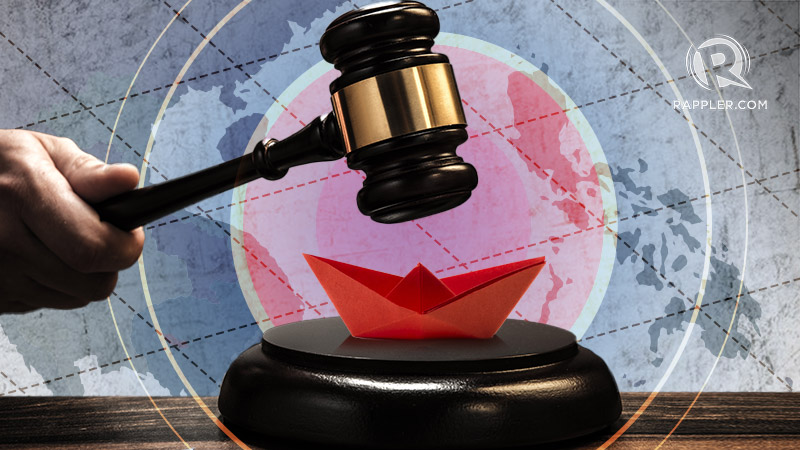

In Hanoi, the buzz at the international conference on the South China Sea held first week of November was this: Will Vietnam do a Philippines and take China to court?
The interest in this lingering question intensified as Vietnam’s Deputy Minister of Foreign Affairs Le Hoai Trung gave the strongest statement ever on a legal solution to its long festering maritime dispute with China. He said in his keynote address that “arbitration and international litigation” are options they are considering in the light of “serious violations” of its exclusive economic zone (EEZ). He did not name China but the reference was obvious.
For about 5 months, from mid-June to early November, China and Vietnam were locked in a standoff near Vanguard Bank. A Chinese geological survey ship and its armed coast guard escorts entered Vietnam’s EEZ in a menacing manner, where Vietnam and a Russian energy company, Rosneft, were drilling for oil and gas. Apart from issuing a series of diplomatic protests, Vietnam vessels eyeballed their Chinese opponents in tense but peaceful confrontations.
The signal from China was clear: It wanted Vietnam to cease its operations because China claims this area near the Spratly Islands.
This is not the first time that China harassed Vietnam. In 2014, China deployed its oil-drilling platform near the Paracels, claimed by both Vietnam and China, which led to ramming of vessels between the 2 forces. The conflict spilled over into violent street protests in Vietnam.
There are striking parallels to Manila. Both incidents are reminiscent of skirmishes that triggered the decision of President Benigno Aquino III to hale China to an international court in 2013.
- In 2011, China forced Philippine vessels to stop surveying for oil and gas near Reed Bank which lies within the country’s EEZ.
- The months-long standoff between Manila and Beijing over fishing rights in Scarborough Shoal in 2012 was the last straw for Aquino.
‘Elephant in the room’
Similarly, will the recent Vanguard Bank standoff propel Hanoi to file an arbitration case against Beijing?
During the conference, Bill Hayton, a journalist who has extensively studied the South China Sea, referred to the litigation option as the “elephant in the room.” While Vietnam has been keeping this tool in its diplomatic arsenal, it has served more as a leverage against China—something it can dangle whenever China bullies them—than as a real option.
My sense is: A debate has been taking place within Vietnam’s Communist Party on this contentious issue with the Ministry of Foreign affairs (MOFA) leading the charge for arbitration. For one, MOFA, through its think tank—the Diplomatic Academy of Vietnam (DAV)—organizes the annual South China Sea international conference to raise the profile of the maritime disputes. Now on its 11th year, the conference is part of Vietnam’s international public diplomacy.
This time, it highlighted the UN Convention of the Law of the Sea (Unclos), now on its 25th year. Vietnam invited 2 of the 5 judges who decided the Philippines vs China case, as speakers: Rüdiger Wolfrum and Stanislaw Pawlak. (Watch Rappler’s interview with Pawlak in November 2018 when he came to speak in Manila.) This session contributed to the buzz that Vietnam was seriously mulling about suing China.
Some participants who have followed the conference told me that it has grown to become one of the biggest meetings in the world on this subject, attended by both government and non-government representatives. More than 150 participants came from at least 20 countries, including the US, China, India, Australia, Taiwan, Philippines, Malaysia, Indonesia, and from some European nations. (Disclosure: The DAV invited me to speak at a panel and hosted my 2-day stay.)
To sue or not to sue
I asked Prof. Yann-huei Song of Taiwan, an Unclos expert who was a speaker at the conference, what he thought Vietnam would do. “They’re considering it…anything can happen,” he said. “Look, the Berlin Wall fell!” He added, though, that the relations between the communist parties of Vietnam and China are good, one factor which will affect Hanoi’s future decision.
Outside the conference, Norah Huang, who heads the international studies group at Prospect Foundation in Taiwan, a leading think tank, said that the Philippine victory in the 2016 arbitration “fits Vietnam…Since the Philippines is not taking action [to assert the ruling], its Vietnam’s turn.”
She added that Vietnam used to talk about the litigation option privately but the announcement of Deputy Foreign MinisterTrung sends a “signal” that they seem ready to do it. (I spoke to Huang in Taipei during a recent visit.)
Others think it is unlikely that Vietnam will sue China. The ties between the 2 countries’ communist parties appear to be a bond that’s difficult to breach.
For its part, China vehemently warned Vietnam “to avoid taking actions that may complicate matters.” A spokesperson for the Chinese Ministry of Foreign Affairs said this in response to a question on Trung’s statement about possibly taking the arbitration route.
Next year, though, will offer opportunities for Vietnam to take a high-profile role. It will chair the Asean where long-running negotiations on the Code of Conduct with China will continue. Also, Vietnam will be a non-permanent member of the United Nations Security Council for 2020-2021. There, it can raise China’s aggressive incursions in the South China Sea.
Will 2020 be the year Vietnam will hale China to court? If so, the Philippine case will come in handy for them. – Rappler.com
Here are related stories you may have missed:
Vietnam joins Philippines in case vs China
PH to tribunal: Vietnam boosts case vs China
Vietnamese in PH celebrate Hague ruling vs China